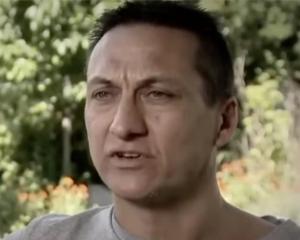But rights activists sounded a note of caution over expectations of a quick way out for Chen, saying Beijing could be worried that appearing to be soft might embolden other challengers to Communist Party rule ahead of a power handover late this year.
The announcement by the Chinese Foreign Ministry followed a dramatic and very public appeal by Chen, who spoke by phone to a US congressional hearing on his case, asking to be allowed to spend time in the United States after fleeing 19 months of extra-judicial captivity in his home village.
"If he wants to study abroad, he can apply through normal channels to the relevant departments in accordance with the law, just like any other Chinese citizen," ministry spokesman Liu Weimin said in a brief statement, adding Chen was still being treated in hospital.
Clinton, in Beijing for strategic and economic talks, said the U.S. ambassador to Beijing, Gary Locke, had spoken to Chen again when he had confirmed he wanted to go to the United States to study, along with his family.
"Over the course of the day progress has been made to help him have the future that he wants and we will be staying in touch with him as this process moves forward," she said.
"This is not just about well-known activists; it's about the human rights and aspirations of more than a billion people here in China and billions more around the world and it's about the future of this great nation and all nations," Clinton added.
US officials said they now expect to have regular access for both American diplomats and doctors. They also said that checks had shown that Chen had three broken bones from his escape, and his foot was put in a cast.
US State Department spokeswoman Victoria Nuland said Chen had been offered a fellowship from an American university, where he can be accompanied by his wife and two children.
New York University issued a statement confirming that Chen was invited to that university's law school.
"Chen Guangcheng has long-established relationships with faculty at the NYU School of Law, and has an invitation to be a visiting scholar at NYU," said a statement by NYU spokesman John Beckman.
NYU School of Law professor Jerome Cohen, a leading US expert on the Chinese legal system, is a friend of Chen's. Cohen was unavailable for comment.
Nuland said Washington expected Beijing to quickly deal with his application to travel abroad. "The United States government would then give visa requests for him and his immediate family priority attention," she said in a statement.
While some activists warned that China could drag its feet on Chen, Bob Fu of the Texas-based advocacy group ChinaAid said in a statement on Friday that "Chen is so widely popular now, Beijing probably wants him in New York as soon as possible."
The crisis erupted last week when Chen sought refuge in the US Embassy. He stayed there for six days until Wednesday when US officials took him to a Beijing hospital after assurances from the Chinese government that he and his family would receive better treatment.
But within hours, Chen, 40, had changed his mind, scuppering what had seemed to be a delicately constructed deal between Chinese and US diplomats to allow him to receive treatment for a broken foot and be reunited with his wife and children.
Chen was anxious about his future and the fate of family members who apparently helped his escape and were detained by authorities in the rural eastern province of Shandong.
The issue cast a shadow over this week's visit to Beijing by Clinton for talks intended to improve ties between the world's two biggest economies.
Despite the friction, a U.S. official said China would raise foreign ownership limits in domestic joint-venture securities firms and allow them to trade commodities and financial futures in a move to further liberalise capital markets. Treasury Secretary Timothy Geithner said China had also made significant reforms to its currency regime, long a bone of contention.
Clinton told Chinese President Hu Jintao ties were the strongest they had ever been. But Beijing has nevertheless accused the United States of meddling in its affairs in the Chen case.
Chinese human rights lawyer Tang Jitian cautioned that the authorities could easily hold up the paperwork to delay Chen leaving the country. China's security forces might not be as keen as its diplomats for a quick exit.
"This notice from the Ministry of Foreign Affairs is positive news, but how it will play out we don't know. For instance, getting the approval for the paperwork to go, there are many potential pitfalls," said Tang. "We can't be 100 percent optimistic."
One of China's main official newspapers accused Chen of being a pawn of American subversion of Communist Party power and described US Ambassador Locke as a backpack-wearing, Starbucks-sipping troublemaker.
"Chen Guangcheng has become a tool and a pawn for American politicians to blacken China," the Beijing Daily said.
Chen, in translated comments, also told the congressional hearing that villagers who had helped him were "receiving retribution" and he was most concerned about the safety of his mother and brothers.
His village remained under lockdown. Guards chased away two Reuters reporters who attempted to enter the village on Friday. The four heavy-set guards ran slowly, yelling at the reporters as their car drove away.
Chen, who campaigned against forced abortions under China's "one-child" policy, sought refuge in the US Embassy after escaping from house arrest in a village in Shandong on April 22.











